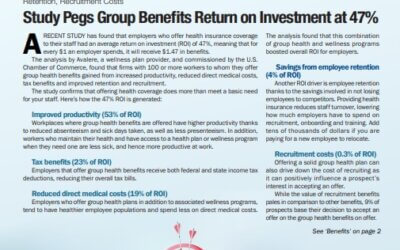A new area of potential liability for employers was recently opened when a class-action suit was filed against Johnson & Johnson (J&J), accusing it of mismanaging its pharmacy benefit manager plan, resulting in the health plan and its enrollees overspending millions of dollars on medications.
Health plans contract with PBMs to tamp down pharmaceutical costs, but reports have shown that they often send enrollees to pharmacies they own and which overcharge for medications sometimes by thousands of percent.
PBMs have been drawing increasing flak from states attorneys general as well as Congress and state houses, where multiple measures that would rein them in are in play.
If the lawsuit is successful, it could leave both self-insured and insured employers exposed to lawsuits by disgruntled employees who are forking out significantly more than they should.
The Case Against J&J
The class action, filed Feb. 5 in the US District Court for the District of New Jersey, accuses J&J of breaching its fiduciary duty under ERISA when it mismanaged its employee health plan by paying its PBM, Express Scripts Inc., inflated prices for generic specialty drugs that are widely available at a much lower cost.
The employees suing J&J cite a number of examples of how the company’s plan overpaid for prescription drugs. One of the most egregious examples cited in the lawsuit was an instance when the plan paid more than $10,000 for a 90-pill generic drug to treat multiple sclerosis, which can be purchased without insurance on different retail and online pharmacies for $28 and $77.
“The burden for that massive overpayment falls on Johnson and Johnson’s ERISA plans, which pay most of the agreed amount from plan assets, and on beneficiaries of the plans, who generally pay out-of-pocket for a portion of that inflated price,” the plaintiffs wrote.
“No prudent fiduciary would agree to make its plan and beneficiaries pay a price that is two-hundred-and-fifty times higher than the price available to any individual who just walks into a pharmacy and pays out-of-pocket,” they added.
It further accuses J&J of agreeing to terms under which plan beneficiaries were financially incentivized to obtain their prescriptions from the PBM’s own mail-order pharmacy, even though that pharmacy’s prices are routinely higher than the prices at other pharmacies.
The case accuses the company of:
- Failing to regularly put PBM services out to bid.
- Failing to negotiate favorable terms with PBMs and continually supervise PBM’s actions to ensure that the plan is reducing costs and maximizing outcomes for beneficiaries.
- Failing to periodically attempt to renegotiate PBM contracts.
- Failure to independently assess the PBM’s formulary placement of each prescription drug and closely supervise PBM’s formulary management to ensure the plan is paying only reasonable amounts for each prescription drug.
- Improperly steering plan participants towards their PBM’s mail-order pharmacy, even though that pharmacy’s prices were routinely higher than what retail pharmacies charge for the same drugs.
The Fallout
Legal observers say employers that offer their employees group health insurance that includes one of the nation’s large PBMs, could be targeted.
The driving argument would be that employers have been warned through news reports of how PBMs have been accused of not being transparent about their negotiated prices, and how they often pocket rebates that could be used to lower the plan’s and enrollees’ outlays.
Most at risk are employers that are in self-insured or level-funded plans. It’s not clear yet how much liability insured employers may have, but they too could be accused of choosing health plans for their employees that contracted with PBMs that allegedly overcharge for medications.

